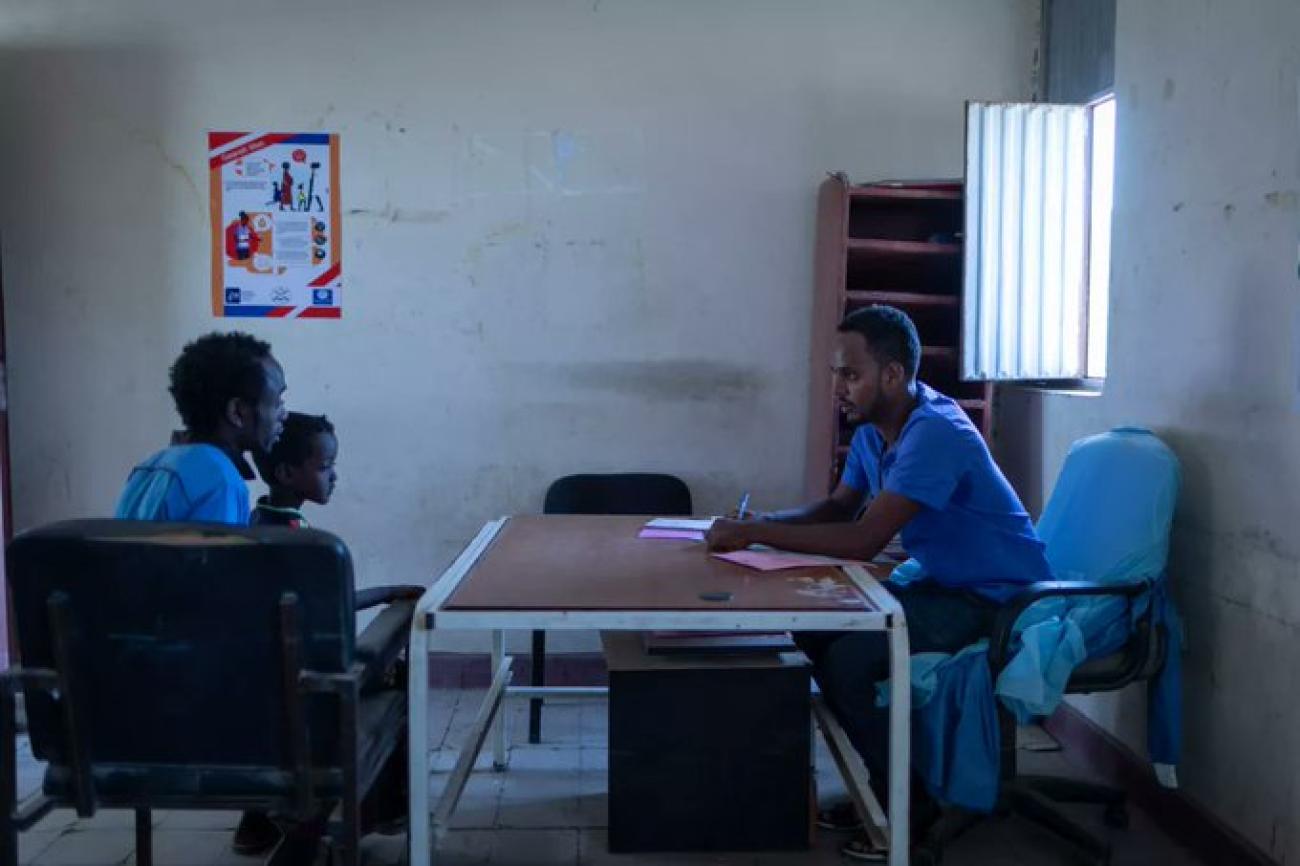Mental Health for Healthcare Workers

Protecting the well-being of healthcare workers in conflict-affected regions of Ethiopia
The northern Ethiopia conflict left a devastating impact on communities including frontline healthcare workers. Many healthcare workers lost their lives and their significant others also suffered injuries. Apart from the physical injuries, they suffered from distressing experiences including forced displacement, long-distance journeys without food and water, separation from families and loved ones, as well as the tragic loss of their colleagues.
Netsanet Argaw, a dedicated midwife at Chifra Primary Hospital, in the Afar region of Ethiopia, recalls the devastating impact of the conflict. “It was very difficult to return to a sense of normalcy after what we have witnessed during the conflict,” she says.
Ahmed Mohamed, a health officer at Semera Health Centre, also shares Netsanet’s view. He was previously working at Kalewa Primary Hospital which suffered significant damage. “Our hospital was damaged from three rounds of conflicts. No supplies were coming. For months, we were disconnected from any form of communication,” he says.
Ahmed and his colleagues stayed behind and tried their best to provide services in difficult conditions. They treated community members and wounded soldiers until they ran out of supplies. But, in the process, they themselves were suffering from a lot of distress, surviving each day with anxiety. “We were not sure about what the next day will bring. But we decided to serve.”
During conflict, frontline healthcare workers suffer the most and their mental health and wellbeing is often overlooked.
Anecdotal information gathered by UNICEF after the northern Ethiopia conflict indicates that that the detrimental effect of the war had hindered the smooth delivery of essential health services including Maternal Newborn and Child Health (MNCH) as well as HIV services in the war-affected regions of the country. In addition, health care workers suffer from stress and burnout. The impact of the conflict, limited health supplies and increased workload has taken negatively affected their mental and physical well-being. Lack of rest and self-care opportunities makes it hard to sustain the resilience of the healthcare system.
Following a national consultation, it was decided that Emotional Resilience (ER) or mental health workshops specifically for MNCH/HIV healthcare workers are essential. Consequently, five ER workshops were conducted in 2022 and a total of 238 healthcare workers took part. "There is no question that the mental health training provided immediate relief for us,” says Netsanet. “It provided us with a platform to open up and share our experiences.”
“I strongly suggest that this training continues,” adds Ahmed. “Healthcare workers also need care and support.”
In the conflict-affected areas of Ethiopia, UNICEF provides emotional resilience training with support from the Mac AIDS Fund (MAF) to keep the wellbeing of healthcare workers. The training aims to provide comprehensive support to communities and healthcare workers who have been affected by the conflict. The training prioritizes mental health, so health workers are equipped with the necessary skills, health, and psychological support to serve their community.
Netsanet and Ahmed are happy that the northern Ethiopia conflict has stopped. They are back to their duties of serving. Prioritizing mental health intervention for frontline healthcare workers improves health services and builds a strong community.
By Yayeh Negash


